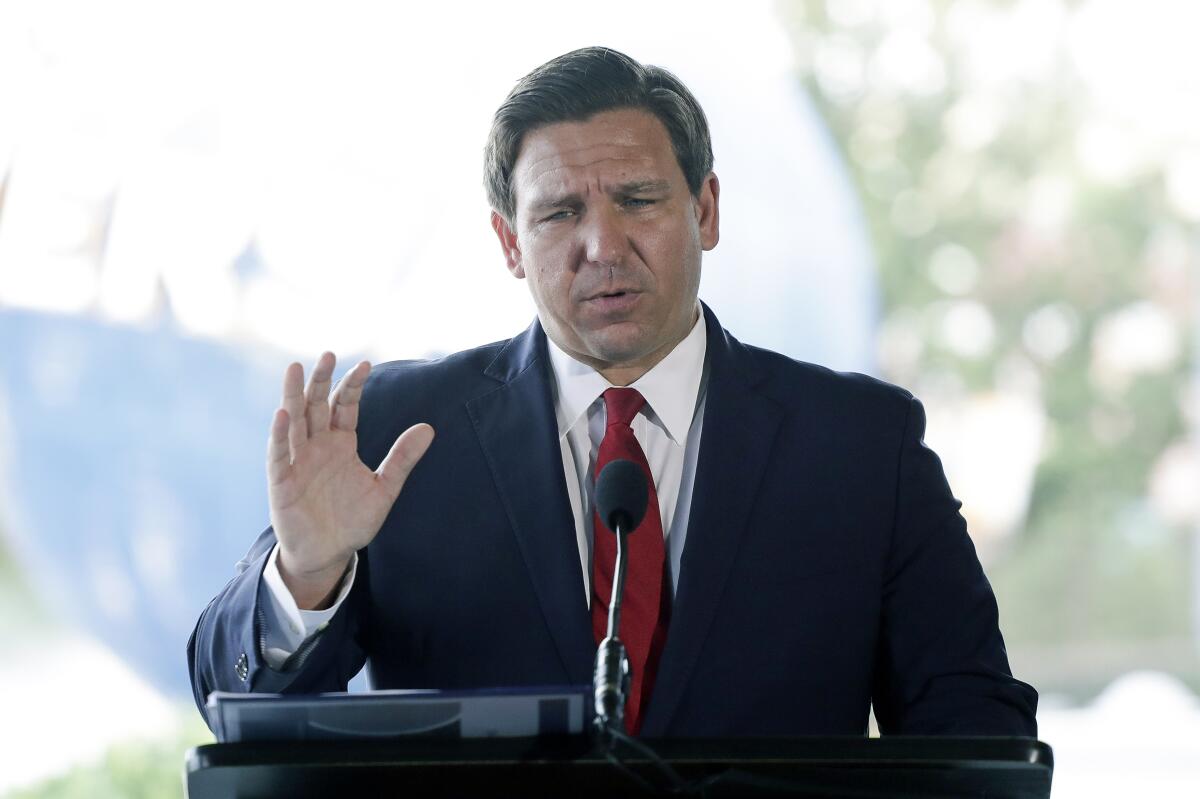Letters to the Editor: This is what conservatives find so radical about critical race theory

- Share via
To the editor: Columnist Robin Abcarian’s defense of critical race theory omits important points made by proponents of the movement. She claims that critical race theory is not radical, and opposition to it is the same as opposition to an honest racial discussion.
According the book “Beyond All Reason” by law professors Daniel A. Farber and Suzanna Sherry, critical race theory and “radical multiculturalism” assert the following: Standards of merit are socially constructed, storytelling by the oppressed is preferred over traditional forms of argument, knowledge is based on membership in a group, and racism explains much of the relative positions of different groups in society.
I and many conservatives I know favor an honest discussion of racial disparities. I welcome reform of police procedures, better education for those with fewer advantages and improved healthcare. I do not believe that American is racist and, according to their statements, neither does President Biden nor Vice President Kamala Harris.
It is radical to reject the concept of merit, to address people as group members rather than individuals and to denigrate traditional forms of argument.
Steve Murray, Huntington Beach
..
To the editor: Years ago, our lawmakers wanted all students to pray in public schools. Now we are witnessing a new culture war to determine what kind of history should be taught in public schools.
Florida Gov. Ron DeSantis seems acquainted with the term “critical race theory,” but he doesn’t understand what it means when he says that it is “teaching kids to hate their country and to hate each other.”
DeSantis and some of his fellow Republicans were obviously schooled years ago in a type of history that did not disturb their own prejudices. Now they want to transfer that same shallow and comfortable history onto school kids today.
Anyone knows that if we are encouraged to look at our history with clear eyes, we will be more likely to look at the world with clear eyes. This wider and deeper kind of history is inclined to liberate us from our own prejudices.
June Maguire, Mission Viejo
..
To the editor: Since we cannot go back in time, we need to look at the evidence to determine what happened in the past. Abcarian states that our history needs to be reexamined “through the lens of how it exploited and mistreated enslaved people.”
The facts of slavery, Jim Crow and the suffering they’ve caused are real, and so are the facts of how the republic dealt with ending both institutions with a civil war and the transformative civil rights movement.
This is the crux of the issue of critical race theory: The “lenses” aren’t facts but presuppositions, tools that predictably find guilty an entire civilization and its leaders. We need to support objective scholarship, with the least number of presuppositions, and no calumny to anyone disagreeing with the methodology.
And, we should always honor the principle that as Americans, we never make children pay for the sins of their father.
Jorge A. Velez, Long Beach
..
To the editor: Seventy years ago, my mother told me I couldn’t go to my best friend’s birthday party because I would “be the only white face there.” I was stunned and heartbroken; my friend was understandably angry.
Our teacher helped us make up and showed the whole class a short film of which I recall only one scene: the word “prejudice” in giant letters on the screen. I knew it was meant for me. I also knew that not I, but my mother was the prejudiced one.
Abcarian rightfully scolds Republicans who reject teaching the truth of our past and present. Shame on them.
Catherine Wright, Los Angeles
More to Read
A cure for the common opinion
Get thought-provoking perspectives with our weekly newsletter.
You may occasionally receive promotional content from the Los Angeles Times.









